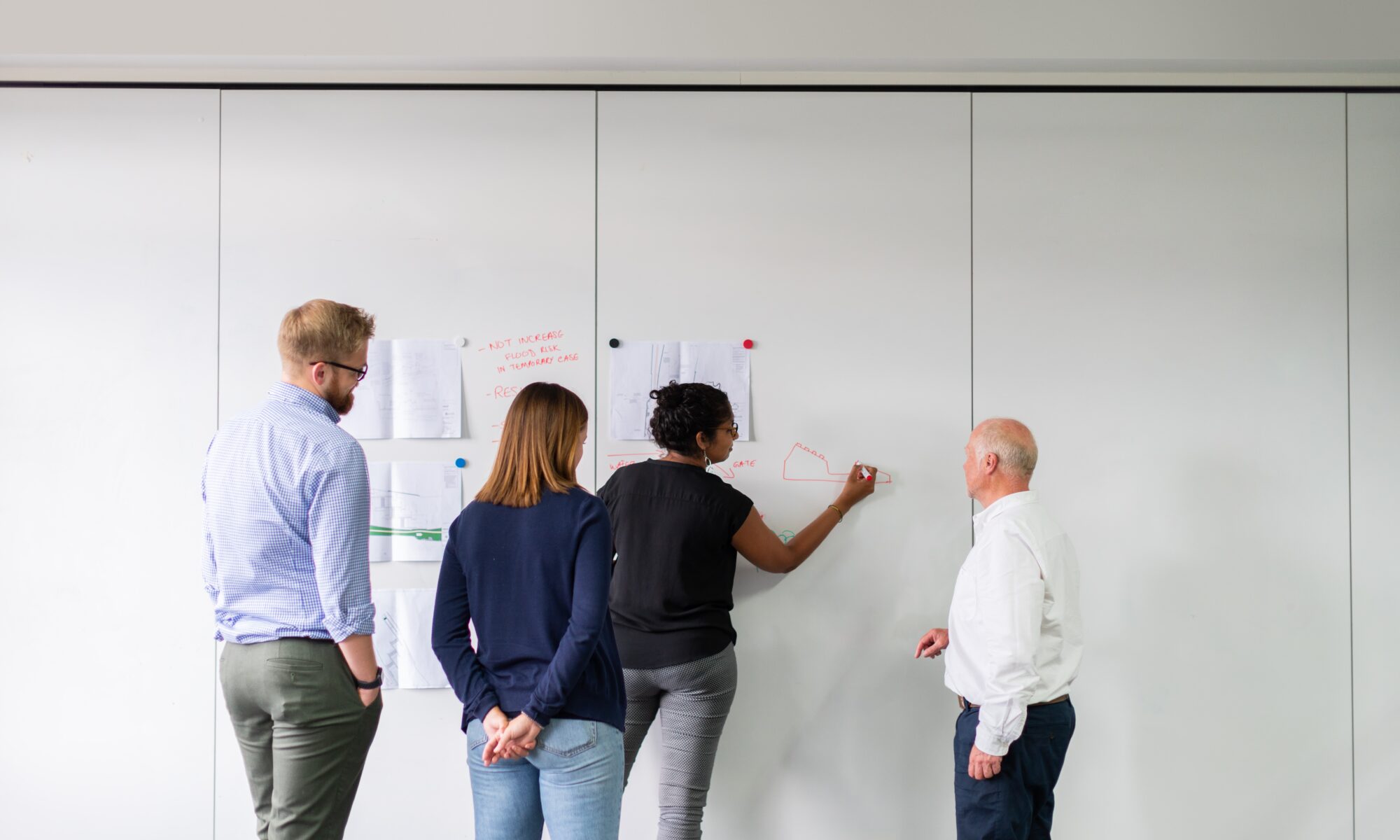Group job interviews are a common recruitment stage for customer-facing job roles, and for leadership and management positions.
In addition, group interviews are used as a screening interview for organizations that receive high number of job applications.
A high number of job candidates struggle to pass a group interview due to a lack of understanding of the group interview format.
In this article, you will learn the structure of a group interview, how interviewees are scored, and what a job candidate can do to stand out in the group interview to ensure an offer of a second interview round.
Group Interview Format
Unlike a structured job interview, where each applicant is asked the same number of interview questions that are then graded with the help of a scoring system, the group interview is an observation interview round.
Group interviews are often part of a full-day recruitment process, which includes:
- A tour of the company
- Technical test
- Role plays
- Structured panel job interview
- Group exercise interview
The group interview takes around 45 minutes to complete.
The employer will first put the interviewees into groups, before stating the task each group has to complete.
Often the task is a problem-solving task, in the form of physical exercise IE ‘make a bridge over a river using the objects’.
The task isn’t always relevant to the job sector because the task itself isn’t important.
What is important are the qualities of each applicant.
This is because the employer uses a group exercise to better understand how each job candidate acts when working collaboratively in a stressful situation.
Some employers increase the stress by giving a short time frame to complete a difficult task or will ask the groups to attempt a very difficult brain-teaser task.
After the group exercise time-frame has come to an end, the group may be asked to feedback.
The three stages of a group exercise are:
- Introduction to the group activity
- Group completing the set task
- Feedback from the group
What is being assessed during a group interview exercise
Technical interviews are designed to test competencies and knowledge, whereas a group interview exercise is looking at a candidate’s personals qualities:
- Communication
- Leadership
- Teamwork
- Supportiveness
- Listening
- Temperament
- Following processes (set out in the rules of exercise)
- Creative thinking
- People skills
In one group exercise for a large airline company, looking to recruit a number of customer service employees, the hiring managers ask that each candidate stands on a stage and deliver a short 60-second introduction speech.
The recruitment team stated that the rest of the applicants, the audience, to listen to the speaker and give a round of applause at the speech end.
Around 6 hiring managers stood around the room observing and taking notes. The hiring manager, though, wasn’t watching the speaker, instead, they observed the audience, making notes of who, instead of listening, was checking updates on their phone and which applicants had their full attention on the stage.
Anyone who was seen not to be fully listening to the speakers didn’t make it to the second job interview stage.
A second employer asked groups of applicants applying for a managerial position were asked to complete a physical brain teaser – dropping an egg from a height without the egg breaking, by using a range of potential random objects to reduce the like hood of the egg breaking once it hits the floor.
Three hiring managers observed the groups. With the position being a leadership role, many of the applicants wanted to stand out by taking the lead. One potential manager grabbed the instructions and started to assemble the equipment. Another directed the group participants to delegate roles. A third candidate, in their team, asked questions and encouraged people to become involved in the task.
Three candidates acted in three separate ways, all examples of various managerial styles, but which approach was best?
The three rules for a successful job interview are:
- Identity the job criteria
- Be a self-promoter
- Communicate with confidence
Rule number one is key here. What is the culture of the organisation? What is the employer’s preferred management style? Which leadership style best fits the job sector?
How to pass a group interview
In the main, the group interview exercise looks at personal skills and qualities.
The aim is to complete a task, even though a group task is the required action, instead the objective is to observe how each applicant acts and interacts when given a potentially stressful task.
Employers observing group exercises like to see:
- Leadership
- Encouragement
- Teamwork
To be seen as a highly valuable potential employee follow these three steps:
- Take charge
- Encourage involvement
- Create a team approach
Take Charge of the Group Exercise
In the main, most people in a group interview won’t take the initiative.
Taking the initiative creates the ‘leadership’ position. being seen as the natural leader creates a subconscious high-status persona that results in other candidates referring to the ‘group leader’.
In all group exercises, the employer will state the exercise details and give a duration.
The specific details for the task will be written down and one of the group members will have to collect the instructions from one of the hiring managers. This is the first opportunity to take a leadership position, by being the person who stands up and collects the written instructions.
Once, with the instructions in hand, others will naturally look towards you.
Remembering that the whole group exercise process is being observed, read out the instructions to the group.
After reading out the instructions, summarize these and then ask an ‘encouragement’ question to encourage involvement from the rest of the group: “Has anyone had to complete the (task) before?” while looking at each member of the group in turn.
Next, suggest and guide the group by asking for suggestions on how they should approach the task. If the group has introverted members, specifically ask for their opinion.
If there are several good suggestions, recommend the group take a vote as the task needs to be completed within a short duration.
If there is only one idea (you should also have suggested an idea or approach) or once the vote has been completed, explain that everyone should have a role and ask: “Who would like to do X?” or “Who has the skills to do X?”
End, the planning phase of the group task by giving encouragement: “I think it was really good that we were able to share some ideas and pick roles. We have X time left so let’s go for it. I know we can be successful with this task.”

Encourage Involvement
Many of the group tasks during a recruitment event are difficult.
Purposefully difficult, because the employer is observing how candidates act during a stressful situation.
The difficulty of the tasks results in several of the group, getting ‘stuck’ or feeling ‘lost’. Be aware that the ‘lost’ feeling will happen, and look out for when this happens.
When a team member becomes lost, give encouragement. Ask: “(name) is everything ok, need a hand?”
You can also assist: “have you tried doing X?”
Also, offer praise to others: “great job (name), that’s really going to help.”
It is the leadership and teamwork skills that employers are looking for, not the completion of tasks.
By communicating, listening, encouraging, in short – leading the group, the hiring managers will be impressed with the skillset on show.

Create a Team Approach
There is a balance between being the leader and creating a team environment.
Being to directive could be seen as a negative (depending on the job role) by the hiring managers and some candidates sensing that the contrast between the candidate taking the initiative and themselves could make them look bad might start to challenge you.
The goal then is to create a sense of collaboration, teamwork.
If a candidate challenges the leadership role, encourage their ideas. Ask: “great, what’s your plan/idea?” or if they have relevant experience ask: “That really useful, what do you recommend?”
The goal here isn’t to stand out as the leader. By being the person who collects the instructions, reads them out, and ask the group for ideas and suggestion, the recruitment team will already have noticed you. Encouragement to others, throughout the task, only helps to reinforce the positive first impression.
The real goal, therefore, is to create a productive team, which is why it is suggested to ask for other peoples ideas, and thoughts.







